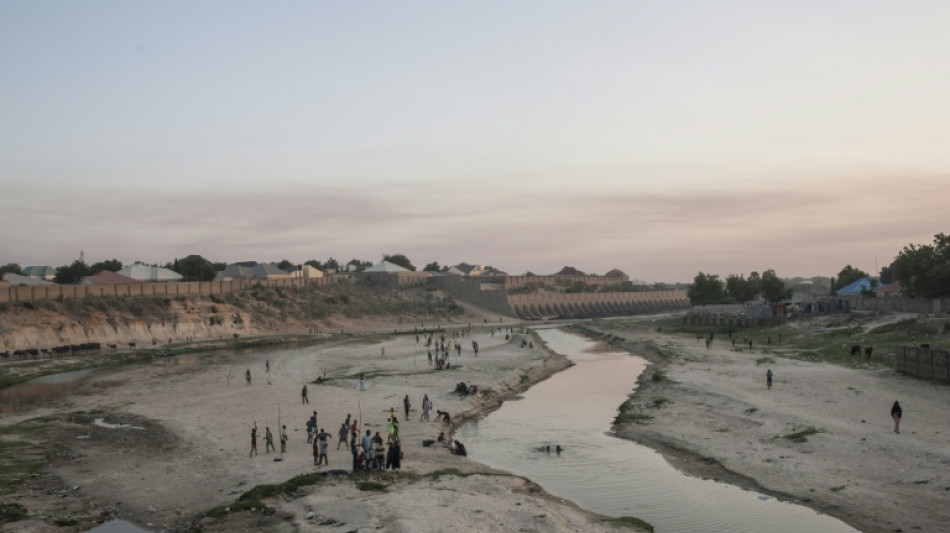
-
 Scandic Trust Group strengthens sales network with First Idea Consultant
Scandic Trust Group strengthens sales network with First Idea Consultant
-
Turmoil in tiaras at Miss Universe pageant in Thailand

-
 Probe into Thales defence group looking at Indonesian contract
Probe into Thales defence group looking at Indonesian contract
-
US to cancel flights as longest govt shutdown drags on
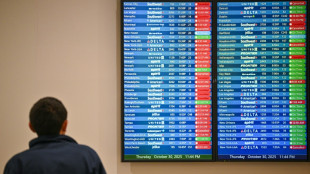
-
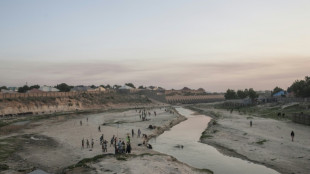 Home in Nigeria, ex-refugees find themselves in a war zone
Home in Nigeria, ex-refugees find themselves in a war zone
-
Doncic's Lakers hold off Wembanyama's Spurs, Blazers silence Thunder

-
 For Turkey's LGBTQ community, draft law sparks existential alarm
For Turkey's LGBTQ community, draft law sparks existential alarm
-
Musk's $1 trillion pay package to face Tesla shareholder vote

-
 Tonga rugby league star out of intensive care after seizure
Tonga rugby league star out of intensive care after seizure
-
Argentine ex-president Kirchner goes on trial in new corruption case

-
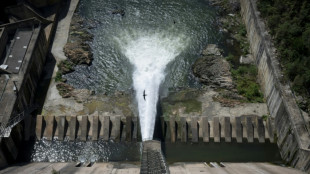 Dams, housing, pensions: Franco disinformation flourishes online
Dams, housing, pensions: Franco disinformation flourishes online
-
Endo returns as Japan look to build on Brazil win

-
 Franco captivates young Spaniards 50 years after death
Franco captivates young Spaniards 50 years after death
-
German steel industry girds for uncertain future
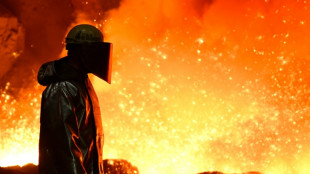
-
 IPL champions Bengaluru could be sold for 'as much as $2 billion'
IPL champions Bengaluru could be sold for 'as much as $2 billion'
-
Budget impasse threatens Belgium's ruling coalition

-
 New Zealand ex-top cop admits to having material showing child abuse, bestiality
New Zealand ex-top cop admits to having material showing child abuse, bestiality
-
BoE set for finely balanced pre-budget rate call
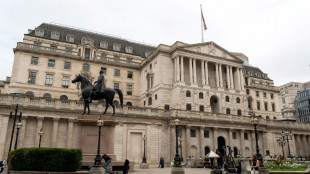
-
 Australian kingpin obtains shorter sentence over drug charge
Australian kingpin obtains shorter sentence over drug charge
-
Weatherald's unenviable Ashes task: fill giant hole at top left by Warner

-
 Ovechkin first to score 900 NHL goals as Capitals beat Blues
Ovechkin first to score 900 NHL goals as Capitals beat Blues
-
On Mexico City's streets, vendors fight to make it to World Cup
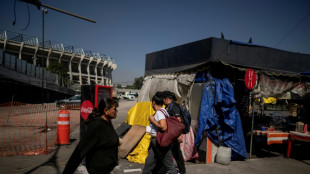
-
 Asian markets bounce from selloff as US jobs beat forecasts
Asian markets bounce from selloff as US jobs beat forecasts
-
Philippine death toll tops 140 as typhoon heads towards Vietnam
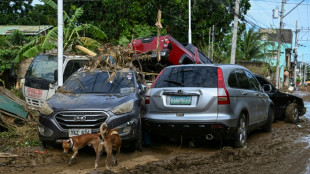
-
 Kyrgios targets 'miracle' Australian Open return after knee improves
Kyrgios targets 'miracle' Australian Open return after knee improves
-
'AI president': Trump deepfakes glorify himself, trash rivals

-
 Belgium probes drone sightings after flights halted overnight
Belgium probes drone sightings after flights halted overnight
-
Five things to know about 'forest COP' host city Belem
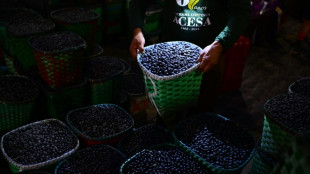
-
 World leaders to rally climate fight ahead of Amazon summit
World leaders to rally climate fight ahead of Amazon summit
-
Engine fell off US cargo plane before deadly crash: officials
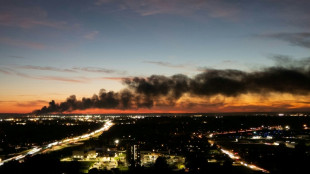
-
 Mexican leader calls for tougher sexual harassment laws after attack
Mexican leader calls for tougher sexual harassment laws after attack
-
Meghan Markle set for big screen return: reports

-
 Japan deploys troops after wave of deadly bear attacks
Japan deploys troops after wave of deadly bear attacks
-
SSHT S&T Group Ltd. Announces Strategic Plan to Transition to NASDAQ Main Board and Advance eSIM Commercialization

-
 GPO Plus, Inc. Increases Revenue Nearly 6X Since Entering the DSD Market, Now Scaling Phase Toward National Expansion
GPO Plus, Inc. Increases Revenue Nearly 6X Since Entering the DSD Market, Now Scaling Phase Toward National Expansion
-
Diageo PLC Issues Fiscal 26 Q1 Trading Statement

-
 NV Gold Announces Closing of First Tranche of Private Placement
NV Gold Announces Closing of First Tranche of Private Placement
-
FIFA announce new peace prize to be awarded at World Cup draw in Washington

-
 Australia's Cummins hints at return for second Ashes Test
Australia's Cummins hints at return for second Ashes Test
-
Boeing settles with one plaintiff in 737 MAX crash trial
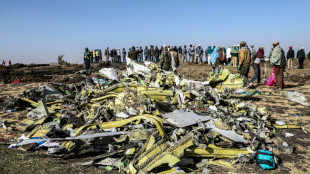
-
 Man City win as Inter stay perfect, Barca held in Champions League
Man City win as Inter stay perfect, Barca held in Champions League
-
French superstar DJ Snake wants new album to 'build bridges'

-
 Barca rescue draw at Club Brugge in six-goal thriller
Barca rescue draw at Club Brugge in six-goal thriller
-
Foden hits top form as Man City thrash Dortmund

-
 NBA officials brief Congress committee over gambling probe
NBA officials brief Congress committee over gambling probe
-
Inter beat Kairat Almaty to maintain Champions League perfection

-
 Newcastle sink Bilbao to extend Champions League winning run
Newcastle sink Bilbao to extend Champions League winning run
-
Wall Street stocks rebound after positive jobs data

-
 LPGA, European tour partner with Saudis for new Vegas event
LPGA, European tour partner with Saudis for new Vegas event
-
Eyes turn to space to feed power-hungry data centers


Home in Nigeria, ex-refugees find themselves in a war zone
Abdulhamid Mohammed fled his home in northeast Nigeria in 2015, chased into neighbouring Chad by jihadists who torched homes and shot civilians in his lakeside village.
A decade later, little has changed in the fishing community of Doron Baga -- though that didn't stop the government from trying to send him back there earlier this year.
As jihadist violence has ticked down from its peak a decade ago, Nigeria has closed down most displacement camps on its own soil and repatriated refugees living abroad, in an effort to repopulate the countryside and restore "dignity" for people driven from their homes.
A deal struck in February between Nigeria, Chad and the UN refugee agency, UNHCR, saw nearly 8,000 refugees return voluntarily to Nigeria.
But many like Mohammed are considering returning to life as a refugee.
The 40-year-old fisherman came home only to find parts of Lake Chad were still under jihadist control.
"You can't go there," he told AFP in Maiduguri, the Borno state capital, where he is now living. "I have the intention to go back to Chad, because in Chad... I can continue catching fish."
In May, an attack a village just 10 kilometres (6 miles) away from Doron Baga, left 17 farmers and fishermen dead.
"There's nothing left in my hometown," said Mohammed Abubakar, 46, another ex-refugee from Doron Baga.
- Border town cut off -
Nigeria has been fighting a jihadist insurgency since Boko Haram's uprising in 2009, in a conflict that has spread across borders and birthed deadly splinter groups like the rival Islamic State West Africa Province.
Suicide bombings and gun fights no longer rock the Borno state capital Maiduguri, where markets now throng and restaurants stay open late.
But while the city has found safety, it lacks jobs: Abubakar strings together piecemeal work as a day labourer, but he said he's also considering trying his luck in Chad.
Both men described similar situations: being promised a better life in Nigeria, waiting in a camp for displaced people once they crossed over from Chad, then arriving in their largely deserted village, still on the front lines of war.
People have been returning to Malam Fatori, a once-thriving border town a stone's throw away from Niger, since 2022, when the government organised a return of refugees.
But years of insecurity have wiped out the town's economy. The Nigerian army sometimes closes the border crossing to Niger.
Many of the returned farmers lack start-up capital, leading to food shortages, residents say.
Fishermen and traders who venture into the bush meanwhile must pay off jihadists at makeshift checkpoints. Civilians describe living in fear, worried that fighting could flare up between militants and the nearby military base.
"We were happy to come back to our ancestral home," said Falmata Mohammed, 35, a mother of four and former IDP.
But she and her fellow returnees "have no money to buy food. Sometimes we sleep hungry."
Others have paid with their lives: in September, a jihadist attack on the recently repopulated town of Darul Jamal left scores dead.
- Returning to Chad -
Babagana Zulum, governor of Borno -- the epicentre of the Boko Haram conflict -- earlier this year warned that security forces were "losing ground" to jihadists.
But he has kept steady the government's policy of shutting down IDP camps.
The government has described them as crowded, costly and unsustainable, especially as international funding has withered in recent years.
"We are not denying that insecurity still persists in some areas. The fact remains that Borno state remains largely peaceful," Dauda Iliya, a spokesman for Zulum, said in a statement, noting that more than one million people have been resettled under his administration.
But some returnees have already returned to life as a refugee.
"The money finished quickly. There was no work. No lake. No way to survive," Mala Abdallah, 55, said of his return to Nigeria.
Living in Chad the first time, he had been able to sell firewood work as a small-time trade. It wasn't easy work, but it paid the bills.
Just months after returning to Nigeria, Abdallah made the painful decision to leave again, this time not to escape violence, but poverty.
"In Chad, at least I can eat," he told AFP, speaking on the phone from Chad.
P.Silva--AMWN